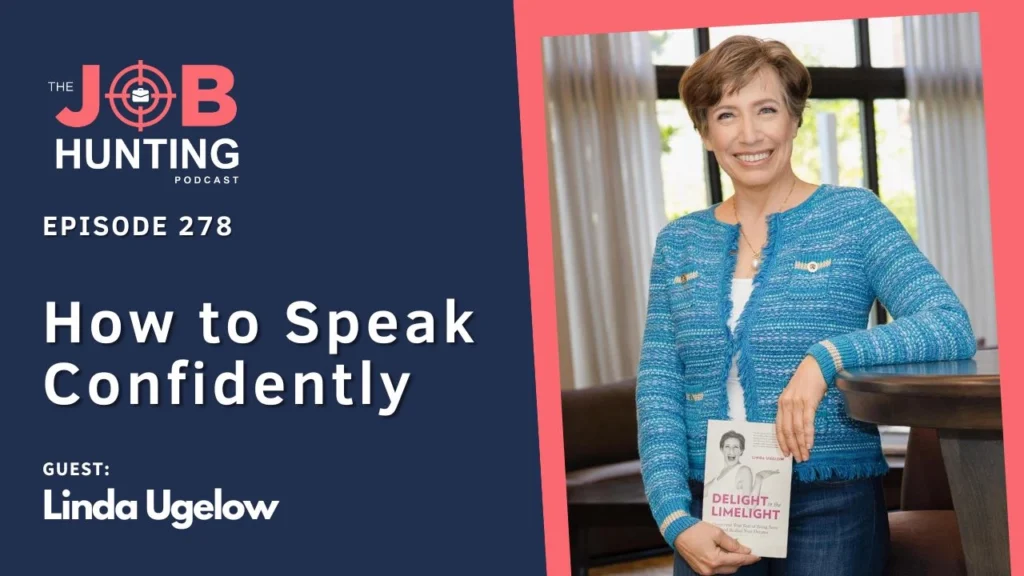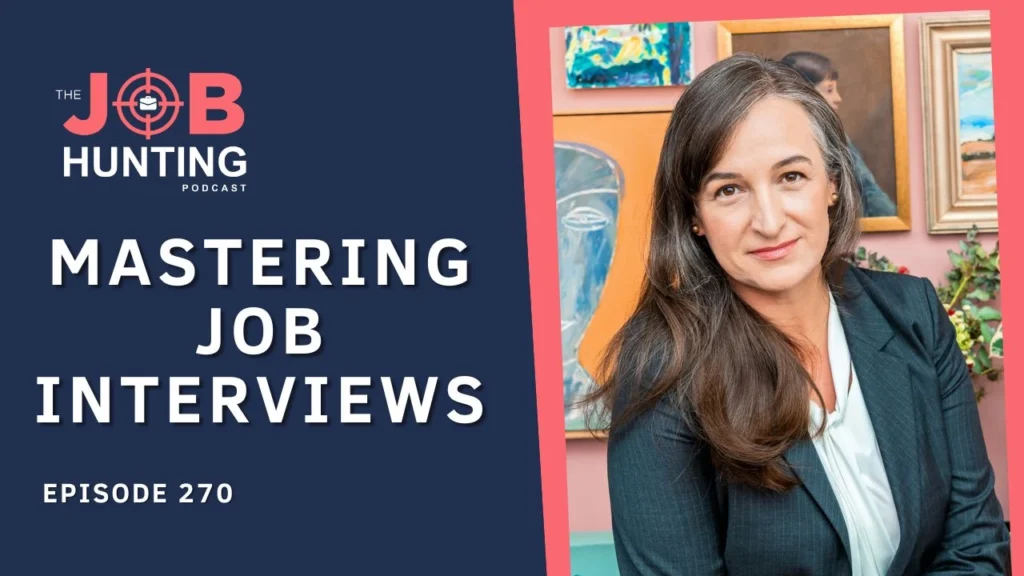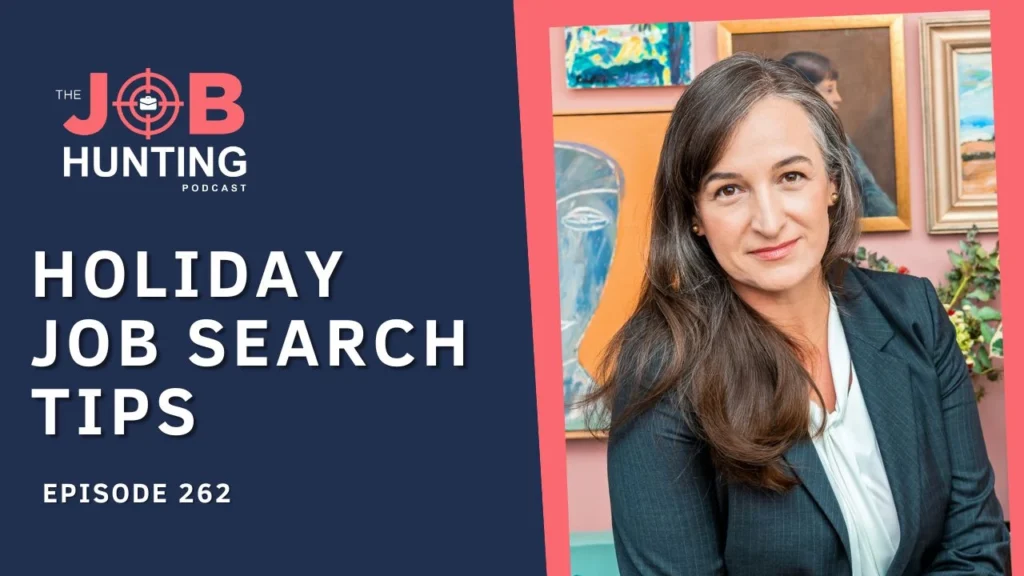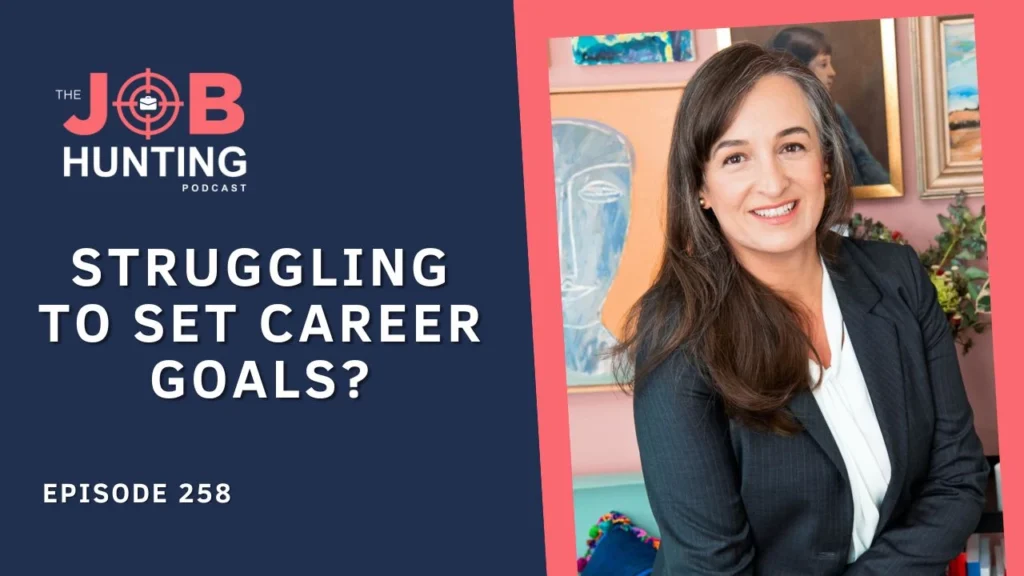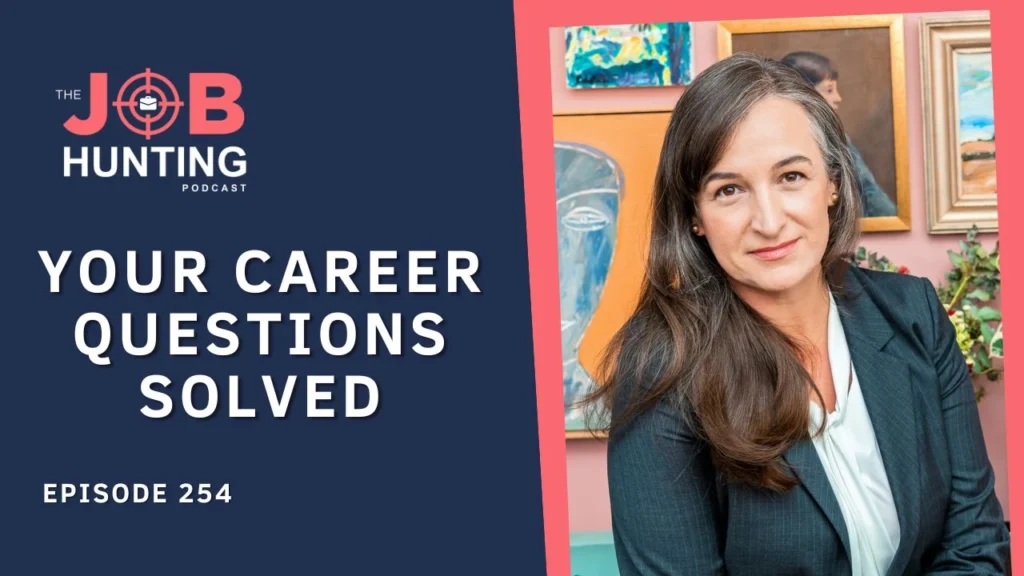Renata (00:53)
If you’re struggling to put together your resume and apply for jobs in this very automated way that we have these days, you’re going to really enjoy my conversation with Dan Fantasia, who is the CEO and president of TreeLine. It’s an organization that is specialized in recruiting sales professionals and they have received so many accolades from Forbes and from Inc Magazine. Please check them out. There’s a link in the show notes below.
We discuss, yes, the sales profession, but we discuss recruitment more generally, how recruitment went about in 2023 and 2024, what are Dan’s expectations for 2025, how to farewell in job interviews, how to speak with confidence when your career is not linear, when there’s patchiness that has happened in your career. We discuss so many interesting topics that I think are above and beyond just
things that are unique for sales professionals. So please listen to this episode. It’s very rare that somebody that has such a senior role in a recruitment firm takes time to to job seekers. Right. So this is a really good opportunity to understand not only his philosophy about recruitment, but how he influences and trains and coaches his team to work with people like you. So without further ado, I hope you enjoyed this episode.
Let’s get going.
Renata (02:22)
So, Dan, I have to admit, the first reason why I decided to interview you is because I really liked your surname. Is that Dan? Fantasia? I don’t know if you I’m Brazilian and Fantasia in Portuguese has dual meanings. It means fantasy, but it’s also like a costume.
Dan Fantasia – Treeline (02:30)
ha ha! Well, that’s cool.
Yeah. Yeah. Yeah.
Renata (02:45)
As we record this, people in my country are preparing for Carnival and they are looking to set up their fantasia, the Carnival costume.
Dan Fantasia – Treeline (02:49)
Yeah.
I did not
know. I thought I knew the, you know, I also thought it was like a dream, dreamy kind of, that’s interesting. Yeah, yeah, yes. Dave, who’s been on my team for 20 years, he is from East Portuguese and I’m half Italian, half Irish. Yeah, yeah.
Renata (03:02)
Yeah, yes, fantasy dream. You’re right. Yeah. Yeah. There you go. I love that.
Uh-huh.
all right. Lovely.
Okay. So, Dan Fantasia, thank you for being on the Job Hunting Podcast. It’s really exciting to have you here because I come from that sales DNA. So, I have a personal interest and I’m always trying to convince people to consider sales roles. So, I want to first ask you, why did you set up an executive search firm that focuses on sales?
Dan Fantasia – Treeline (03:42)
That’s a good question. Well, when I graduated from college, I didn’t have a lot of direction. And I wish I had known a person like me then that could steer me in the right direction or at least give me some advice or explain what sales was in general. So I started as a late night CAD operator.
that was quickly promoted into a sales role and then general manager in this CAD CAM organization and left the company after about three years because I was looking to focus specifically on sales. And I went to a recruiting firm and when I went to that recruiting firm, I was introduced to a industry that I had never heard of it before.
And my family and my friends thought I was crazy to get into recruiting, but I loved the company and the culture and I loved being able to help people. And so I just fell in love with the industry, the career, the people. Salespeople are usually very dynamic and motivated. And so it was the perfect audience to work with, you know, to advance their careers and change their lives.
Renata (04:43)
you
Interesting. What are the types of professionals that tend to lean towards sales roles?
Dan Fantasia – Treeline (05:14)
I would not say it’s the type of professional. I’d say it’s more of the personality characteristics. So it could be any profession. Most people, when they leave college or maybe don’t go to college, they join a profession and they kind of fall into it. But they don’t have a lot of direction. There’s no guidance. There’s showing them the way or how to do this.
Renata (05:21)
Good. Yeah.
Dan Fantasia – Treeline (05:43)
And so as a result, they just kind of fall into a career and the next thing you know, 20 years later, they’ve been promoted in that career if they’re ambitious and they get kind of Well, with sales, the personality characteristics that make a good salesperson are individuals that are hard workers, that have grit because there’s a lot of rejection in sales.
but is also the type of person that has a positive mental attitude, strives to be better just in their lives. They like to compete to win, not necessarily with other people, but specifically with themselves. So they set goals and they work hard. There’s more soft characteristics, but people that have…
positive attitudes that are competitive and have a strong work ethic may want to consider their career in sales because usually those attributes will help them become top producers and top producers tend to make a significant amount of income.
Renata (06:52)
Yes. I don’t know if you know about this, but there is a book called Learned Optimism by Martin Seligman. He’s the father of positive psychology. And the reason why he started researching positive psychology and created that sort of area of expertise is because he was hired by a company as a consultant to help boost the sales team. And while doing
research with the sales team, he identified those characteristics that you mentioned. He called it optimism. He found that the high performing sales professionals were optimistic about the outcomes of their calls, of their conversations with prospect clients, and that made them better performance. And that’s why the book is called Learned Optimism is because if you fall into a sales profession,
but you’re not a natural optimistic, you can dial that up with some exercises, some, it’s like going to the gym and working on that muscle. Have you ever found people like that that had to kind of really work on that optimism, that grit that you mentioned in order to succeed in sales or do they opt out?
Dan Fantasia – Treeline (08:00)
I
Yeah, so first of all, from my own personal experience, I’ve always been optimistic. I’ve always been super positive and high energy. But when I got into recruiting, I was bad at it. I was just bad at it, Renata. I wasn’t good. I was naive. I didn’t really understand how to take leadership or give advice. I was early in my career. I was 27. And so I was meeting with people that were…
much more experienced than I, and I didn’t have the confidence to give them guidance in their career because I just didn’t have it. So every day I’d wake up and I’d say to myself, today’s going to be the best day of my life. And I’d repeat it over and over and over again. And on the way to the office, when everyone had to be in the office, I would say to myself, I’m going to be the number one producer in this company. I’m going to be the number one producer in this company. And so…
That positive affirmation helped me believe. And then before you know it, I shouldn’t say before you know it, it took me a year. I went from the last producer to the number three producer at the end of the year. But the positive affirmation was really hard to say. So it’s hard to tell yourself that you’re going to be the number one producer when you’re the last producer or the lowest producing producer. And believe it.
That’s really, really hard. I help my own team do that, right? But to believe it is a hard thing to do. And so a year later, when I became number three, I’m like, okay, I believe this. Then the next year I became number one and I became the youngest managing partner in the company. And so that belief system, that positive mental affirmation, me continuing to tell myself I’m the best works.
But a lot of people don’t believe in it. They think it’s silly or they give up on it before they find the success. And so when we start new people, I let them know that based on the type of characteristics we hire, they’ll put the most amount of pressure on themselves. It won’t come from me or our management team. It will come from them. And then the second thing we help them is we help them build confidence and belief in their ability to be top producers.
and successful in this particular field.
Renata (10:34)
Yeah. Yeah, I really want to talk even more about sales profession and sort of the variations of it. But before we go there, you’re not 27 anymore. So you’ve been in the recruitment firms and industry for a long time. How is it fairing in at the beginning of 2025 and how did it go on 2024?
I feel like that there’s a lot of changes happening to recruitment and I would love for you to explain what’s going on for job seekers.
Dan Fantasia – Treeline (11:01)
Yeah.
Yeah, I think, 2022 and 20, I’m sorry, 2023 and 2024 were flat years for us. No growth, no decline, just flat. And so that’s never fun. Maybe some people might think that’s successful, but it’s never fun, you know, to be flat. We’re a company that likes, we’re a high growth company. We’ve run an Inc. 5000 fastest growing company five times. So we like to grow.
Renata (11:15)
Right.
Dan Fantasia – Treeline (11:34)
And by the way, that slows down momentum and everything else just in the organization. But we’re seeing it really pick up in 2025. So that’s a good plus. We’re seeing companies kind of shake it off and look to hire, which is great. That’s really good. In regards to the field, I remember, I’m confident in the recruiting industry.
Because I remember when I got into the business, was 19, like I said, was 1997. And at the time we didn’t even, we weren’t even using computers. It sounds so crazy now when I look back. But anyway, it was just all cold calls. We just picked up the phone and called people and we wouldn’t even know who they were. But anyway, the point is when Monster started, everyone said recruiting is done.
And then when indeed happened, right? Like a job aggregator, recruiting is done. Then LinkedIn, recruiting is done. AI, recruiting is done. The problem with that is that in order to find people that are a good fit culturally and have the right skill set for a company or for your company, you have to talk to them.
You can’t look at a piece of paper, especially salespeople. Matter of fact, salespeople usually have crappy resumes. But you can’t tell who’s a top producer until you speak to them because they’re a top producer. produce and they feel like they’re awesome. And then they put together this resume, but no one knows how strong they are what they’ve accomplished. And so as a result, you need to kiss a lot of frogs. You need to turn over every rock. And our clients need help finding top producers with industry expertise.
that are interested in their opportunity. And so there is nothing we found. All of these things are tools to help us find top producers, but you need human interaction to speak with them, to qualify them to make sure they’re a good fit and that they’re interested in the opportunity to add any value. And if you think that technology alone can find great people and qualify them,
It can’t. There are too many variables when working with people that make a difference in every single search, including companies might be horrible at selling their organizations or their process is horrible. And so without advice and help, they continue to fumble and lose all the A producers or A players and end up hiring D players. So there’s too many variables. They all need help.
Renata (14:29)
Yes. it’s so interesting what you just said, because I think a lot of people lose faith in their ability to convey their messages because they feel uncomfortable with technology. And I find that my clients that are in sales or business development, they are the ones that struggle the most. mean, my clients are usually in their 40s and 50s. So for them to
Do I have to write on LinkedIn or what do you ask me to do? What is ATS system? So you’re right. I think that they do have a tendency to poo poo the technology because they’re so good with their voice, you know, with their narrative. They just want to be in front of people and convince them because they have that art of persuasion down to a T and translating that into a document is not for some is not as easy.
Dan Fantasia – Treeline (15:10)
Mm-hmm.
Renata (15:24)
It’s funny you mentioned Monster.com. I interviewed one of the founders. There’s two founders for Monster. One is Jeff Morgan, who is one of my biggest mentors. He’s Australian. And the other one is Andrew Banks. And they sold their business to a US company. And that’s how it became so big. And they moved on to other things. And Jeff has a very similar narrative to yours in terms of that.
a need for that humanism, humanistic nature of recruitment not to disappear, even though he found it from monster.com. I will link the interview here. It’s an old interview. It’s one of my first, but if anyone is interested to listening to that, he really does mention that quite a few times in the conversation because he thinks that if we just automate everything, we will not hire the best people.
Dan Fantasia – Treeline (16:18)
No, you need human interaction to find the right fit. And that takes a lot of work. That’s the challenge. It takes a lot of work.
Renata (16:26)
Yeah.
How are you finding professionals today? Are they coming to you when you advertise for roles still, or are you looking for them on LinkedIn? What’s the breakdown of how you’re identifying the good candidates?
Dan Fantasia – Treeline (16:44)
the above. So when we start to work with the client, we first start to consult with them and understand the company, their sales model, the average sales size, the sales cycle, the quota. They’re looking for transactional or, you know, a solution based consultative type sales individual. So we do a lot of work to figure out first what their sales model looks like so that we can find the right characteristics to align with that.
Then based on their requirements, we go to the market. we usually search. There’s a bunch of things we do. We’ve been in business for 24 years, so we have access to talent, individuals that are not actively searching in the job market. They’re usually in touch with us saying, I’m happy where I am. I’m doing very well. But if you happen to find this type of opportunity, I’d like to know. And so our
Clients or most companies just don’t have access to that talent. So we will use our database. Secondly, we will post jobs, but 99 % of the time, the individuals that apply to those jobs are not a great fit for those jobs. They usually are a good fit for a different job because we represent so many. really, jobs drive traffic, but they don’t necessarily drive qualified traffic.
Right? They create, they create a lot of noise. And sometimes you need to, you know, look at other options. And then we, where we add a lot of value is we are really good at prospecting and looking for individuals that, know, competitive individuals or people from the same field. That could be on LinkedIn. That could be, that could be on the web. That’s, it’s everywhere. We search and find people all the time.
Renata (18:04)
Oh, Yeah, it is.
Dan Fantasia – Treeline (18:33)
And then we have to engage with them and then we have to build a relationship with them. And once we build a relationship with them, if they’re not already in our database, then we consult with them to find out what they want to do and what their next step is. And as opportunities come up that meet that requirement, we can introduce them to the companies and their websites and the job descriptions and make sure they’re a good match.
Renata (18:58)
everyone listening, just rewind and listen to this again. It’s such important knowledge for job seekers to understand how things work outside of their spectrum of influence and their perspective on things. I’m really interested to find out a little bit more about what you said before that a lot of the people that apply for an advertised position are not the right candidates for that position. What do you what can you do or say to help candidates?
that are listening understand why that happens or what they need to do to better position themselves for the right roles. Is this happening? So I have a few assumptions here. Is this happening because the person who is looking for a job is getting too anxious and applying for everything? Or is it because they truly believe that they can do this position?
this role because they can see all the transferable skills, but they’re not finding better ways to translate those skills or there are too many people in the market, they’re more aligned. So the transferable skills won’t work for that role.
Dan Fantasia – Treeline (20:08)
I think so if you are in a job search right now, there’s a few things that you want to think about when you build your strategy. The first thing is you really want to be searching for a job or connecting with a company like ours before you need to look for a job. You want the longest runway possible.
so that you are in control, so that you can negotiate the compensation. If you’re working at a company and you’re talking to a firm like ours and you have specific requirements, when we find companies that meet those requirements, you want to know about them. And if you choose to decide to interview, in order for that company to acquire you, if they really like you, well, they have to pay you more, you can negotiate.
So that’s number one. Number one is build a relationship with a good search firm. I’m not saying that all of them going to be great. So if you have a bad experience, keep looking until you find the right one. But give yourself a long runway and make sure you’re on the offensive and know what’s on the market rather than being on the defensive. The second thing is when you are unemployed, the people that are unemployed that are looking for a job typically are much more desperate.
And so because they’re more desperate, and I hate to use the word desperate, but when we’re working with salespeople, they’re going to give everything a try. They will send and click and apply to everything because they figure why not. Sometimes they’re disillusioned and they read their job requirements, I’m that person, but they have no experience, nothing proven to back it up, but they just think they’re that person. So when job seekers are more…
desperate or in a job search mode, they will apply to everything. And then they start to get frustrated. Many times they’ll get frustrated with companies because no one replies to them. No one responds to them. they’re like, my God, I sent out 30 resumes. But they may be doing it in desperation, not because they’re qualified. The ultimate thing to do if you’re in a job search, and we have a lot of this on our website, on the resources, know, candidate resources, a bunch of free guides that can help them, help them with all of these things.
But the ultimate is to build a strategy and a cadence, right? They’ve built the territory before, they’ve prospected in a territory to find companies that need their services, right? Their ideal customer profile. If you’re in sales and you’re out of work and you’re looking for an opportunity, treat it like a sales, like you just started at a company. Build out the territory.
Research the companies in the geography you want to be in, in the industry you want to be in. Who are the contacts? Who are the people, right, who are the individuals you should be selling to? Should you be selling to the VP of Sales, the CRO, the Sales Manager, the HR Director, the Chief People Officer? Look at companies you’re interested in. Look to see if they have any opportunities. Connect to the right customer base.
build relationships, drip on them, and continue to work to get your foot in the door. If there is a sales role available that you think you’re a good fit for, don’t just apply to the job. Have a strategy where you can drip on the hiring manager, the HR professional, the CRO, the VP, what have you. But the idea is to have a strategy and then have some kind of cadence. What are you accountable for? How many companies are you going to reach out to on a daily basis?
How many people are you going to drip on? How are you tracking these metrics? What are you doing to be organized to find a new role? If you’re just clicking apply and doing nothing after that, that’s like sending an email to a company to sell your services and never doing anything ever else again. The success rate there was going to be zero. So consider those things when you’re searching for a job.
Renata (24:19)
Absolutely. I love everything that you’ve just said. It resonates. It’s part of my coaching. I think because I have worked in sales and done account management, relationship management and business development as part of my executive career before I became a coach. This is a secret here that I’m telling everybody. I basically used all of that CRM, you know,
strategic design that I did for companies when I led teams and just use that as part of my coaching practice on how people should look for jobs, not just salespeople, everybody. Right. The biggest excuse that I hear then from everybody, sales professionals to, you know, senior as exes, I feel very comfortable talking about the product or the company. I just hate talking about myself. That that’s what they tell me all the time.
Dan Fantasia – Treeline (24:56)
Yes.
Renata (25:15)
I challenge that. think it’s not that they hate talking about themselves. They just haven’t done it and they just don’t know the etiquette that recruitment kind of requires. So they might come too strong or they might come too humble. Have you noticed that, that sort of…
dichotomy between how people talk about the companies and the products and the things that they sell but find it really hard to sell themselves into a role.
Dan Fantasia – Treeline (25:49)
Yeah, we spend with every one of the candidates we work with, once we go through their background, we recap and tell them the story that we heard. And many times they are shocked to hear their own story. And a lot of it is because they took, they take much of their, you know, much of the accomplishments that they’ve had in life for granted.
For example, they could have, if they’re early in their career, they could have played on the volleyball team or the field hockey team or the hockey team. And they were the captain. And they played all four years and they worked at the local pizza place. So they could make money when they started when they were 15 years old. Or maybe they played the piano or they played the guitar.
and they worked really hard, right? Then they rode their bike to the local pizza place and they worked there. Then they went to college and while they were in college, they, or they don’t have to go to college, but maybe they went to college and while they were in college, they had a work study and they were part of a club. And then they graduated and every summer they then painted houses.
And when they graduated, they then found their first BDR role and they were a top producer and the number one representative. And they drove more activity than anyone else. Or maybe they traveled for a year and then they came into their professional life and they’ve been in customer service and then they’ve gotten to sales. The idea is we want to help them embrace and speak with confidence about
all of those decisions, right? They need to speak with confidence. spent a year in Denmark and I traveled Europe and then I spent a year as a ski bum in Wyoming. And you always use those experiences as some of the greatest accomplishments in your life. You don’t push them to the side because people wanna know who you are. They wanna know your whole story. They wanna know
that at a young age you were entrepreneurial and you worked hard and you mowed lawns and you played the guitar and every single day after school you spent three hours learning how to play the guitar because you are the type of person that doesn’t give up and you focus when you set goals you achieve and accomplish those goals and then you graduated with great grades or maybe you didn’t but you you know worked really hard playing hockey or football you know
It’s the story that then you went and you traveled the world and what you learned when you traveled the world is that you need to believe in yourself and feel comfortable in different countries and nobody’s going to take care of you but yourself and those life lessons helped you become the person you are today and then you started, you I guess the point is you want to be able to talk about your successes and your personal life and
what has made you become so successful in sales, why you’ve left different organizations, you were recruited out by your past manager and you were the top producer. this, with everybody, they always have a positive story. It’s just many times they can’t find their voice. And when you tell us your story and we replay it to you, many times they’re like, wow, I am much better and I’m much stronger than I thought I was.
Renata (29:12)
Yeah.
Mm-hmm.
Yeah.
I think it’s interesting you mentioned that I haven’t heard that before, but I like it. I think what those early stories or any story will do to the listener is give some insight into your personality. And I think that that’s what you’re trying to say. They’re proxies to show the recruiter, know, your level of grit, your perseverance, your energy levels and all of that. So that’s interesting.
And I think most candidates or listeners would probably sometimes worried about the lack of linearity in their careers. know, oh, but I stopped and I didn’t change the industries or I was an accountant and I’m now in sales and I’m now, you know, like they worry about the lack of linearity in their career progression. How important is that linearity for you?
Dan Fantasia – Treeline (30:32)
And so if they were, just so I understand this, if you were an accountant and then you were thinking about getting into a career in sales. Okay, so this is what the challenge is.
Renata (30:41)
Yes.
Or if they
have already done it, like, you know, they look back in their careers and they see lots of chops, you know, they started in one thing, then they started in another thing. They worry about the lack of linearity. So when they tell a story, even though they’ve done really well in two or three areas and they they they’re kind of they know they’ve done well, they just change because they may have got bored or.
the circumstances of where they lived, maybe they moved countries, they had to change careers. I had to change careers when I moved countries. So they worry about coming and telling you a story that may not be as linear as another candidate that started as a graduating sales and sort of went up and became the sales director.
Dan Fantasia – Treeline (31:30)
Yeah, no, like so all of those experiences should be told with confidence and conviction. If there is doubt, then the interviewer is wondering what’s going on here? What happened? This doesn’t make sense to me. But maybe you got into sales, then you went into accounting, and then you’re thinking about getting back into sales. You know, you can leverage that, you know, that you love this. This would be my story.
Renata (31:36)
Hmm.
Dan Fantasia – Treeline (31:59)
This is what I would probably tell if you were in sales and then went into an accounting role. I would say I got into sales right out of college. And by the way, this is an example of what you could do. I got into sales right out of college. I was incredibly successful. I was one of the top producers, but I graduated with an accounting degree and I thought that I should be an accountant. So while I was incredibly effective and successful in sales, I had to move on to try
being an accountant. I’ve been an accountant for one year or two years or six months and I’ve realized that while I studied it, it is not the profession for me. The nice thing about my background though is I understand sales and I understand accounting and the reason why I’m interviewing with you today is because I noticed that you sell to accountants or you sell to CEOs and
And the advantage to a background like mine is that I can sell. I have the background in sales and accounting and combined, I will be one of your top producers. Right? Or, you know, if you gave me a resume, I could help you develop a story. And when I’m saying a story, I don’t mean make-believe story. I’m saying that how do you piece it all together so that when you sit down with someone, you can speak with confidence.
Renata (33:06)
Yeah.
Dan Fantasia – Treeline (33:23)
and belief in your background. Many people have so much doubt because of the change, but the change is empowering. There’s a reason why you did everything and that’s what you want to talk to. You want to talk to your strengths and confidence around who you are and your ability. Because if you walk in weak, how are you going to say? mean, if you walk in and you’re not confident in your background, how the heck are you going to sell?
Renata (33:43)
Yeah.
Dan Fantasia – Treeline (33:52)
products, right? I mean you might not be selling the best product in the industry. There might be competitors that have a better product, but there are great advantages to the product that you sell. And so you need to believe. There has to be some belief.
Renata (34:05)
Yeah, that’s so good. And it’s a great advice to everybody. Just yesterday, I was with a client and she’s not in sales. And I was saying exactly that. She’s had a tumultuous couple of years. And that’s very common with a few professionals since the pandemic. know, the pandemic kind of derailed a few careers. If you lost your job, you’re very senior and you lost your job.
during the pandemic, early days like 2020. And then there were no jobs advertised for maybe a year. And then when you came back into the workforce, there may not have been a job with the salary range that you were hoping for. Things had changed, things were different, contracts were shorter. It was just like a different environment and it got really choppy in the beginning. have some…
professional sales directors, business development professionals that kind of couldn’t find a permanent opportunity after they lost their jobs for a while and they’re just coming back for air now, right? Like really hopeful of 2025. Have you seen that in your firm as well? Careers that are sort of performing well up into 2020 and then…
lots of little things that they have tried to do since then and nothing really sticking. And they get really worried about their resumes for that reason.
Dan Fantasia – Treeline (35:38)
Yeah, yeah, we do see it. Not just because of COVID. In general, people have hiccups in their career for many personal reasons, family reasons, there’s all kinds of… Everyone has challenges. When you go into an interview, so let’s not be nervous or worried. Let’s talk about confidence. Like, what have you done? Believe, right? That belief.
as we mentioned when we kicked this podcast off, right? It took me a long time to believe. And so maybe the first thing you need to do is find some belief. That’s number one. And the second thing is once you have that belief, then you want to speak with conviction, not as a victim, but you want to speak with conviction, right? If you were the perfect candidate for a job, the company will always have objections.
They will always have concerns, whether they’re real concerns or not. So the real question is, it’s your ability to speak with confidence and overcome those concerns, right? Overcome those objections. No matter what, the interview process is always going to be challenging, no matter how perfect your resume is. You’re going in, if your foot’s in the door, you’re going in to talk to them about your ability to do this job and do it well.
And if you spend your time talking about how you were a victim and things didn’t work out the way you wished, you will likely be discarded. But if you talk to people about how you fought through it and what you did to survive and your successes and why you think you could be a strong fit for this organization, then you are putting yourself in more of an offensive stance. Or how about I am going to…
The reason why I’m interviewing you with you today is because I have had some hiccups here, but I’m so talented and I’m capable and I believe in my ability that I know I’ll be one of your top representatives. And I’ll tell you why. Because I’m so eager to find a company that I can sustain a career at that I will not let you down and I will not disappoint you. The nice thing about me is because I’ve seen some disruption, if you hire me,
I will never give up on you and I’ll be here dedicated and loyal to this company so that we can grow.
Renata (38:02)
Yeah, I love that. people, you can just copy paste that. So good. But I think it’s yeah, I find that many senior professionals, because I work usually with people that have, you know, 15, 20 years of work experience. They they are you. I can see a younger professional saying that, but the more senior professionals tend to shy away from selling themselves.
Dan Fantasia – Treeline (38:07)
Yeah, like flip, flip that, flip the script, flip, flip it, right? Like you confidence.
Renata (38:32)
And I don’t think that they should. I think that they should engage with that emotional appeal. There is a reason why you’re there. By the time you reach the point of a job interview, when you are face to face with your future employer, they already believe in you. Nobody wastes time seeing people they don’t believe in. So you might as well go for gold. You might as well do exactly what you just said.
Dan Fantasia – Treeline (38:58)
Like this is another thing. So the assumption is you know, the assumption is you’re concerned because you know exactly what the client wants, the company wants. You don’t. And when I say that, so a company, you might think, a company wants someone with less experience. We have companies that want people with more experience because the younger demographic,
Renata (39:11)
Yeah.
Dan Fantasia – Treeline (39:28)
wants to be virtual or you know, or maybe hybrid and the older generation is more comfortable in office. So we have clients that are actually doing the opposite. They weren’t looking for people that are more senior in their career because they require people in the office. And so you don’t know what experience, you don’t know what challenges companies have. Maybe they have hired people and they all quit after a year because
because of that demographic or generation, they’re quitting because they don’t want to be in the office and so they look for something else. Maybe they’re looking for you exactly because they don’t want people quitting. They want someone that’s comfortable being in the office. So don’t assume that you know exactly what a company is looking for. Every hiring manager has different challenges. You don’t know what they are. And so you don’t know exactly what they’re looking for.
or who fits perfectly in their environment. So the first thing you want to do is go in thinking, I’m going to get this. I’m going to make this happen. And if you have doubt, if you set these, if you set these like expectations of what a client wants before you know what they want, then you’re just kind of walking into, you’re setting yourself up for failure basically.
Renata (40:47)
Yes, you’re right. That’s wonderful. And I’m just going to add up, don’t take anything personally. If you don’t get chosen, that’s okay. Just move on for another opportunity that will be better suited for you. Sometimes it’s so hard, isn’t it, Dan, to choose the final candidate when you’re torn between two or three excellent people. I don’t want people to ever feel less of because they didn’t get the role. There’s another role for them.
Dan Fantasia – Treeline (40:57)
Yeah.
Mm-hmm.
And try not to get angry. Stay positive because your tone will be felt if you’re just frustrated and angry in your job search. I know that’s hard to do, but it is true. You can feel it. So try not to get angry.
Renata (41:17)
Yeah. Yeah.
Yeah.
Yeah, yeah, that’s wonderful advice. Thank you so much, Dan. Now, I will put all the links below to your company, Treeline, to the resources you said that you have online for people to access. Is there any message you want to leave with, you know, especially the American job candidates listening who are interested in sales positions?
Dan Fantasia – Treeline (41:56)
And if they need help, or if you’re struggling, feel free to look me up on LinkedIn at Dan Fantasia. It’s easy enough. Send me a message, connect with me, follow me, whatever you want. If you need advice or help, feel free to reach out. It does get confusing and frustrating. And one other thing I would mention is as you’re interviewing, to take some of the pressure off, you can or you don’t have to, but usually I say,
keep the search confidential and to yourself because if you do experience rejection and you’ve told five people that you’re interviewing at a company, now you’ve got to go tell those five people that they decided to hire somebody else. And so I suggest if you want to keep your emotions in check, just focus on it, do your own search. You don’t have to share it with the world. When you find a new job and accept an offer and sign the paperwork,
then share with the world how excited you are.
Renata (42:58)
Awesome, Dan. Good advice. Thank you so much for coming. You can come back anytime. I really had a great time talking to you.
Dan Fantasia – Treeline (43:03)
Yeah.
Thank you for having me. This was wonderful. I appreciate it.
Renata (43:08)
Excellent, thank you.



